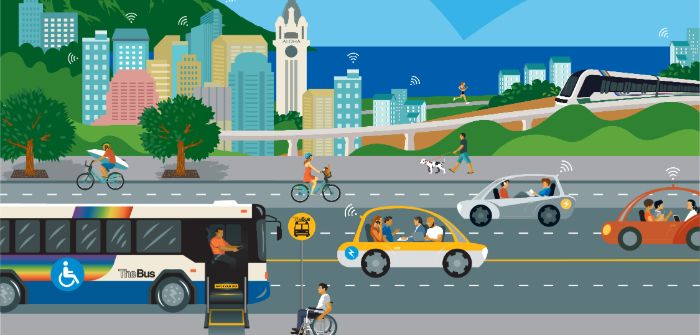Hawaii can claim to be leading the way in autonomous transportation in the USA but still has significant room to improve, according to a new report.
The report, Framework for Hawaii’s AV Future: Accessible, Automated, Connected, Electric and Shared, was produced by Ulupono Initiative and Mobilitye3 (Me3).
Kelley Coyner, founder and CEO of Me3, who was the report’s author, said, “Whether Hawaii is ready, automated vehicles and other disruptive technologies continue to proliferate. COVID-19 has highlighted opportunities to strengthen vital supply chains with automated and electric mobility from trucks to shuttles to e-cargo bikes.
“The chance is now to create an accessible, automated, connected, electric, and shared (A2CES) mobility future that promotes equity, the environment, and economic opportunity for all in Hawaii.”
The report acknowledged Hawaii’s efforts to encourage autonomous transportation but said achievements have been lessened due to a lack of clarity.
It recommends a clearer legal framework; policies for renewable energy and economic viability; improved infrastructure, including electric charging from renewable resources; incorporating AV and electric vehicle considerations into planning aspects; and launching a program of A2CES-focused technology.
Ulupono Initiative has worked with government agencies to bring stakeholders together to accelerate development and deployment of AVs since 2018. Me3 has helped articulate the vision for automated mobility and recommend a framework of private and public sector collaboration.
The full report is available here.


